
Comcast’s XFINITY Home won’t help if the thieves are already inside your house.
Gary O’Reilly and his family moved into their new Libertyville, Ill. home last year and took advantage of a Comcast promotion offering the family a deluxe package of Internet, cable television, and XFINITY Home, Comcast’s home security and automation system. It was a costly mistake that would eventually threaten to leave the family out $1,000, their credit rating destroyed, and hours wasted fighting to get Comcast to live up to its service commitments.
O’Reilly was attracted to Comcast’s security system to protect his family — his wife was pregnant with their second child and they were moving to a new address. In March 2013, two Comcast technicians spent more than eight hours installing four exterior door alarm sensors and two digital thermostats.
Within hours, the family realized something had gone wrong. In the middle of the night, one of the thermostats began beeping relentlessly, indicating a problem.
“It was defective, and because the thermostat was digital, I could not control the temperature in that half of my house,” O’Reilly told the Chicago Tribune’s problem solver. “My pregnant wife and 2-year-old son were freezing in their own home.”
Comcast decided scheduling a service call several days in the future was acceptable under the circumstances, but O’Reilly learned patience isn’t a virtue at Comcast.
Comcast assumes any service call is a potentially billable event, regardless of who is at fault, and O’Reilly discovered they not only charged him for the service call, they also billed him for the replacement thermostat, requiring 8-10 hours of live chats and phone calls to eventually find someone willing to remove the charges from his bill.
The replacement thermostat managed to work for less than a month before it also failed, requiring yet another service call and replacement. Yes, Comcast billed him again for both, requiring another telethon-length session arguing with Comcast’s overseas call centers and live chat employees to remove the charges from his bill yet again.
As you might have guessed, the third replacement began acting up almost immediately, completely draining its AA batteries every 24-36 hours.
That’s your problem, responded Comcast, who would not schedule a return visit to explore the issue further. O’Reilly bought “a ton of batteries over the next few weeks.” The unappreciative third thermostat died anyway.
In mid-June, Comcast returned with thermostat number four, which lasted just a few weeks before it joined the earlier three in thermostat heaven.

Comcast’s idea of compromise is a shotgun wedding: Agree to resume your service and we won’t take you to court.
Shockingly, O’Reilly decided against a fifth replacement and called to cancel his XFINITY Home service. The Comcast representative literally chuckled to O’Reilly after processing his cancellation to “keep an eye out for the termination charges.”
Comcast’s penalty for early cancellation of service: $1,000, conveniently billed on his next invoice.
After literally months of chats and phone calls, Comcast steadfastly refused to waive the charges, reserving the right to charge interest and impose other penalties if O’Reilly didn’t pay.
O’Reilly argues he owed Comcast nothing because the company never lived up to its end of the agreement by supplying reliable service. Nonsense, responds Comcast. After all, they were willing to replace his broken equipment each and every time, all five times.
Comcast wielded everything at its disposal to get paid. The cable company trashed O’Reilly’s over 800 credit score to below 650, preventing him from refinancing his mortgage. The collection calls have also been relentless, and increasingly threatening. On his last call with a Comcast collection agent he was told to pay them in full or they will see him in court.
Even with the venerable Chicago Tribune intervening and willing to serve as a referee, Comcast stubbornly refused to relent, although it offered O’Reilly its definition of a fair compromise.
Comcast spokesman Joe Trost claimed they had reached a settlement with the O’Reilly family.
“Together, [we] talked about the possibility of restarting services with Comcast with the agreement to waive the installation fees and (early termination fees) from the previous account, as well as clearing him from collections and the credit bureaus,” Trost said in an email. “We’re providing Mr. O’Reilly with different package options and composing a letter to overnight to Mr. O’Reilly with the information we discussed over the phone.”
Trost said O’Reilly and Comcast will “move forward together.”
In reality it was a 21st century digital version of a shotgun wedding.
Comcast first offered to remove him from collections, erase the $1,000 early termination fee and clear up his credit history, but only if he agreed to re-establish all of his previous services, including XFNITY Home.
O’Reilly held fast, saying he had no desire to have XFINITY Home back.
With a follow-up story looming in the newspaper, Comcast finally agreed to waive the fees and clean up his credit if he reconnected his Internet service with a higher-speed, more costly Internet tier. O’Reilly said yes.
Another satisfied Comcast customer. It only took 13 months, days of calling and chatting, and a last desperate plea to the Tribune to clear things up.


 Subscribe
Subscribe
 Even worse, if you were convinced to sign up for Framily and another member of your “extended family tree” decided Sprint’s network disruptions and performance were no longer worth the trouble, every other family member’s bill increased when they defected — talk about an awkward moment with friends and family.
Even worse, if you were convinced to sign up for Framily and another member of your “extended family tree” decided Sprint’s network disruptions and performance were no longer worth the trouble, every other family member’s bill increased when they defected — talk about an awkward moment with friends and family.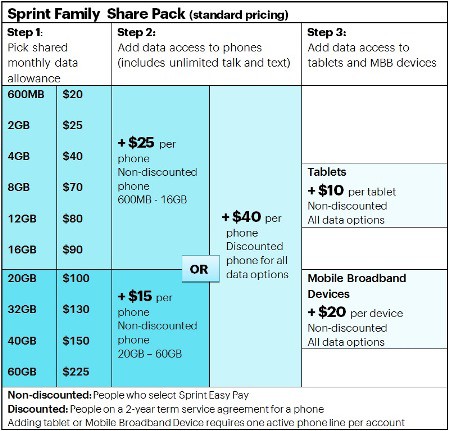
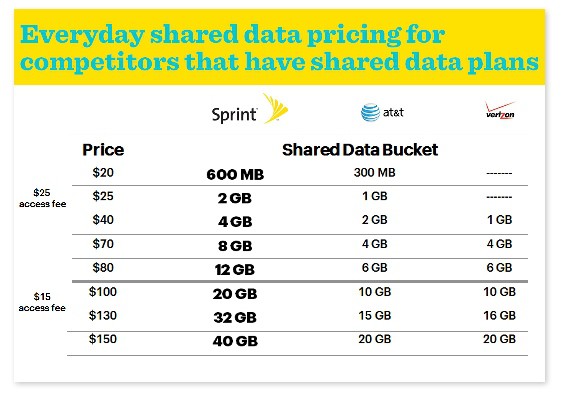 Limited-time Promotion for Customers Switching to Sprint Family Share Pack
Limited-time Promotion for Customers Switching to Sprint Family Share Pack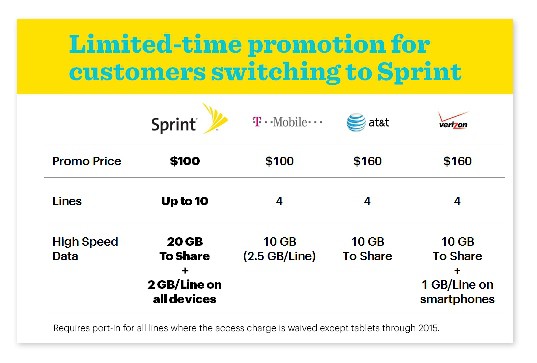
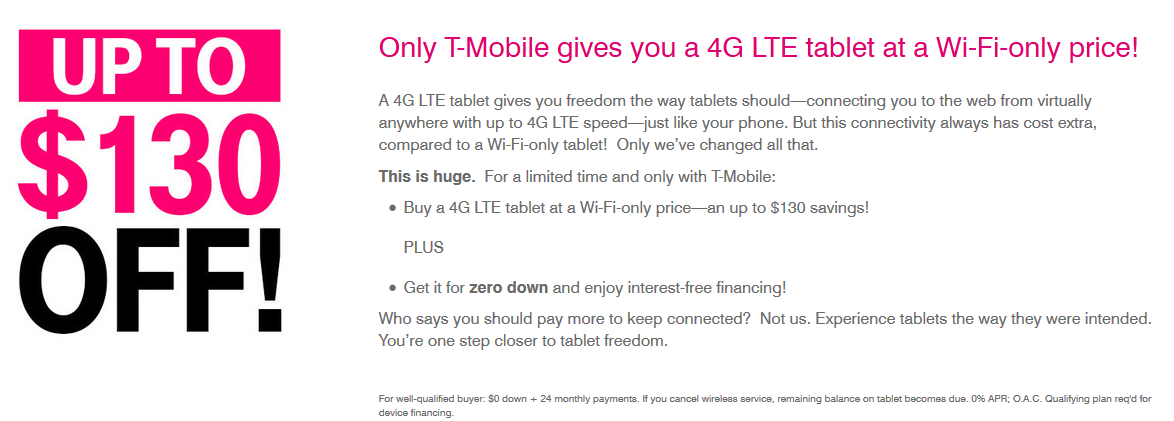 T-Mobile is back with some very aggressively priced packages on data plans, including one offering almost a year of free data. But more impressively, customers also have a chance to buy a 4G LTE-equipped tablet for the same price as a Wi-Fi only version.
T-Mobile is back with some very aggressively priced packages on data plans, including one offering almost a year of free data. But more impressively, customers also have a chance to buy a 4G LTE-equipped tablet for the same price as a Wi-Fi only version. The biggest problem wireless carriers have selling tablets is justifying the cost of 4G-equipped models that typically run at least $100 more than a Wi-Fi only version. As a result, 4G-equipped portable devices like these just don’t sell well. T-Mobile is tackling that problem by discounting the MSRP of their 4G tablets to the same price one would pay for a Wi-Fi only equipped device.
The biggest problem wireless carriers have selling tablets is justifying the cost of 4G-equipped models that typically run at least $100 more than a Wi-Fi only version. As a result, 4G-equipped portable devices like these just don’t sell well. T-Mobile is tackling that problem by discounting the MSRP of their 4G tablets to the same price one would pay for a Wi-Fi only equipped device. AT&T’s investment in U-verse expansion is expected to peak this year as part of its “Project VIP” effort to bring the fiber to the neighborhood service to more areas and offer faster broadband speeds to current customers.
AT&T’s investment in U-verse expansion is expected to peak this year as part of its “Project VIP” effort to bring the fiber to the neighborhood service to more areas and offer faster broadband speeds to current customers.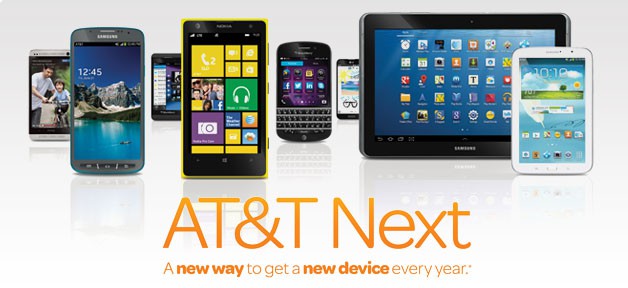
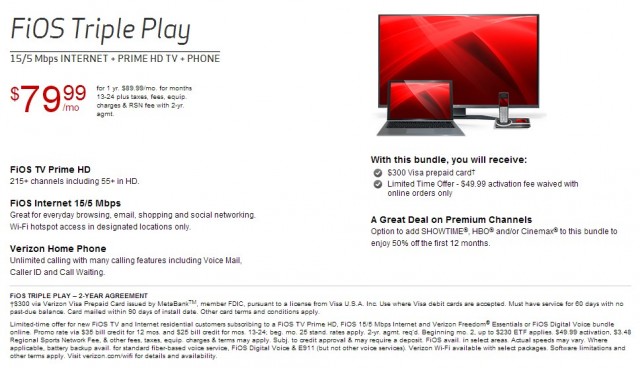
 Here are some tips for current FiOS customers:
Here are some tips for current FiOS customers: